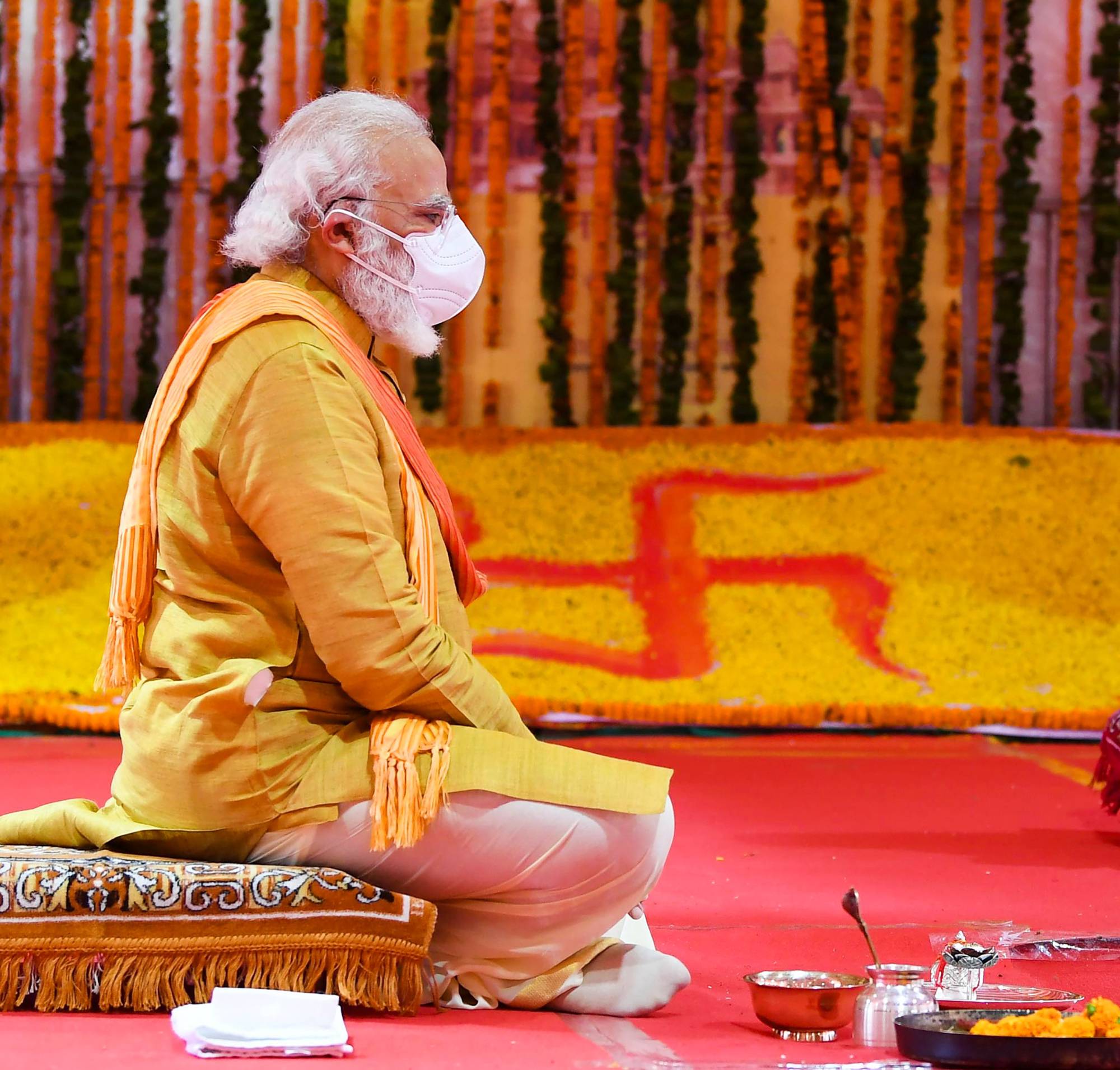Last week, an Indian prime minister, dressed like a priest-king in a saffron scarf, a silver crown and a lockdown-lengthened beard, performed a sacred ritual in the ancient capital of Ayodhya. Narendra Modi thus founded a new Hindu temple on a site where, for hundreds of years, a mosque had stood.
After decades of legal warfare and mob violence, Hindu nationalists have now effectively reclaimed the land where they believe the god Rama was born. The state-sponsored pageantry of the moment, however, proclaimed their greater victory: the transformation of India from a secular-nationalist republic into an ethno-nationalist state.
No mere democratic election could match the elation of this moment, as far as the Hindu revivalists were concerned; theirs was a victory not over politicians but over history itself. In their story of India, centuries of "Muslim oppression” persisted as long as mosques still stood on disputed land and as long as India’s flawed secular leadership sought to include Muslims in a broad governing coalition. Modi’s Bharatiya Janata Party effectively ended both, soundly defeating a government led by a Sikh prime minister and a Christian party president. Modi’s two emphatic election victories, the nationalists believe, have shown India that its Muslims can be safely ignored.



















With your current subscription plan you can comment on stories. However, before writing your first comment, please create a display name in the Profile section of your subscriber account page.